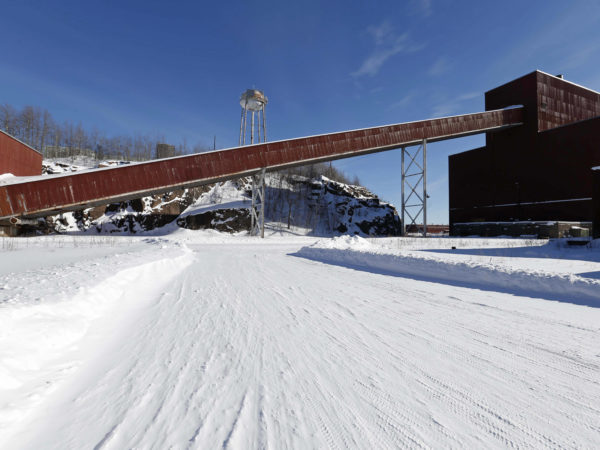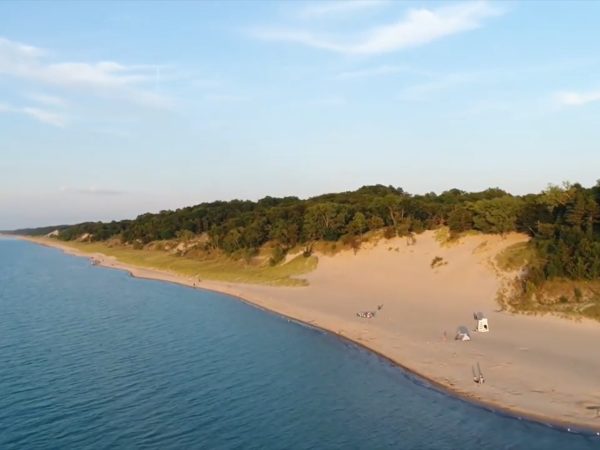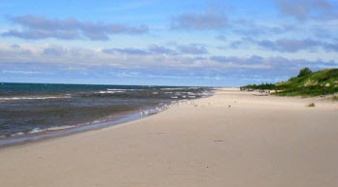
By Danielle Kaeding, Wisconsin Public Radio
This article was republished here with permission from Wisconsin Public Radio.
Dozens of Wisconsin communities will receive more than $273 million from the state for drinking water projects that include removing lead pipes and addressing PFAS contamination.
Gov. Tony Evers announced the funding Monday for 86 communities from the state’s Safe Drinking Water Loan Program.
“Across Wisconsin, countless folks and families worry about harmful contaminants like PFAS and lead every time they turn on their tap—and that is a reality we have been working hard to change,” said Evers in a statement.
Evers credited U.S. Sen. Tammy Baldwin and the Biden-Harris administration for securing the funds through the Bipartisan Infrastructure Law to ensure safe drinking water. The money includes around $13 million to address PFAS and $87 million for lead line replacements in federal infrastructure funding.
Wisconsin has received more than $330 million for water infrastructure under the law, and state environmental loan programs are set to receive more than $900 million in additional funding through 2026.
Cities to receive millions of dollars for replacement of lead pipes
More than $30 million has been awarded to the city of Milwaukee for replacing lead service lines. Last month, President Joe Biden visited the city to announce the Environmental Protection Agency’s plan that requires cities to identify and remove lead pipes within 10 years. The city has replaced around 8,000 out of roughly 73,000 lead pipes, according to Milwaukee Water Works.
The cities of Watertown, Manitowoc and Kenosha are also receiving millions of dollars to replace lead pipes.
Watertown received more than $14 million from the state and anticipates replacing around 1,500 lead service lines, of which most are privately owned. The city has already replaced more than 700 lead lines in the last several years, and it plans to replace the remaining 927 lead service lines by 2027.
Kenosha received $7.7 million to replace public and private lead service lines. Nearly two-thirds of that funding is being awarded as principal forgiveness, which is like a grant the city doesn’t have to pay back.
Curt Czarnecki, general manager of Kenosha’s water utility, said officials anticipate replacing around 700 lead service lines with the funds. The city has about 8,000 utility-owned lead lines and roughly 7,000 private or customer-side lead pipes that still need to be replaced. Czarnecki said funding is the most important part of replacing private lead lines for the 130,000 people they serve, which can cost homeowners thousands of dollars to remove.
“Without some of these federal and state funds, it would create rate shock and make affordability issues with the local utility and our ratepayers,” Czarnecki said.
If federal funding remains available, Czarnecki said he’s confident the city will replace all lead pipes within the EPA’s 10-year timeframe. Previously, officials were anticipating it would take twice as long.
Wisconsin utilities own around 150,000 lead service lines and their customers own more than 134,000 private lead lines, according to data from the Public Service Commission. Tens of thousands more pipes may contain lead. The EPA previously estimated that Wisconsin may have as many as 341,000 lead service lines.
Town of Campbell receives nearly $1M to address PFAS pollution
Just under $1 million announced Monday will go toward the Town of Campbell on French Island near La Crosse, which has struggled with PFAS contamination of private wells. The town will use funding for the first phase of a project to drill a well to draw water from the Mt. Simon aquifer, which would be used as a long-term source of drinking water for the town of roughly 4,200 residents.
Town of Campbell Supervisor Lee Donahue said she had tears in her eyes while talking about the funding, saying the town would be unable to provide a municipal water system without state and federal money. She said officials hope to drill the well within the next two months.
“Our goal is that in the next three to five years, we will have a fully functional Mt. Simon municipal water system in the Town of Campbell,” Donahue said. “And we will no longer have to drink bottled water, and we will be able to safely turn on our tap and drink our water again.”
For the last three years, town residents have been under an interim drinking water health advisory due to PFAS contamination of private wells on French Island. The chemicals have been found in more than 500 wells.
Later phases of the project include building a storage tank and distribution system to connect residents with safe water. Donahue said the town will be relying on state and federal funding to help finance the town’s municipal water system.
Communities will be awarded funding over the next year and reimbursed as they complete work on projects.
The Wisconsin Department of Natural Resources distributes funds under the Safe Drinking Water Loan Program. The agency has provided more than $1.1 billion in financial aid to communities since it began in 1998.
Wisconsin Public Radio, © Copyright 2024, Board of Regents of the University of Wisconsin System and Wisconsin Educational Communications Board.
Catch more news at Great Lakes Now:
Wisconsin Supreme Court to hear case with broad implications for PFAS cleanup
Featured image: A sign at Marinette High School warns of PFAS contamination in water that runs through the school’s campus Thursday, May 20, 2021. Angela Major/WPR




